NHS England
Building a commercial community through the NHS Central Commercial Function
How to avoid meltdown
Why are procurement teams increasingly suffering burnout?
iQuantum
A modern procurement platform for today’s business

NHS England
Building a commercial community through the NHS Central Commercial Function
How to avoid meltdown
Why are procurement teams increasingly suffering burnout?
iQuantum
A modern procurement platform for today’s business
Suki Becker, Vice President Procurement and Real Estate of GfK, led both GfK’s procurement and sustainability transformations




EDITOR-IN-CHIEF
ILKHAN OZSEVIM
CHIEF CONTENT OFFICER
SCOTT BIRCH
MANAGING EDITOR
NEIL PERRY
PROOFREADER
JESS GIBSON
CHIEF DESIGN OFFICER
MATT JOHNSON
HEAD OF DESIGN
ANDY WOOLLACOTT
LEAD DESIGNER
JUSTIN SMITH
FEATURE DESIGNERS
MIMI GUNN
SOPHIE-ANN PINNELL
HECTOR PENROSE
SAM HUBBARD
REBEKAH BIRLESON
ADVERT DESIGNERS
JORDAN WOOD
DANILO CARDOSO
CALLUM HOOD
VIDEO PRODUCTION MANAGER

KIERAN WAITE
SENIOR VIDEOGRAPHER
HUDSON MELDRUM
DIGITAL VIDEO PRODUCERS
MARTA EUGENIO
ERNEST DE NEVE
THOMAS EASTERFORD
DREW HARDMAN
JOSEPH HANA
SALLY MOUSTA
JINGXI ANG
PRODUCTION DIRECTORS
GEORGIA ALLEN
DANIELA KIANICKOVÁ
PRODUCTION MANAGERS
JANE ARNETA
MARIA GONZALEZ
CHARLIE KING
YEVHENIIA SUBBOTINA
MARKETING MANAGER
ANDREW STUBBINGS
PROJECT DIRECTOR
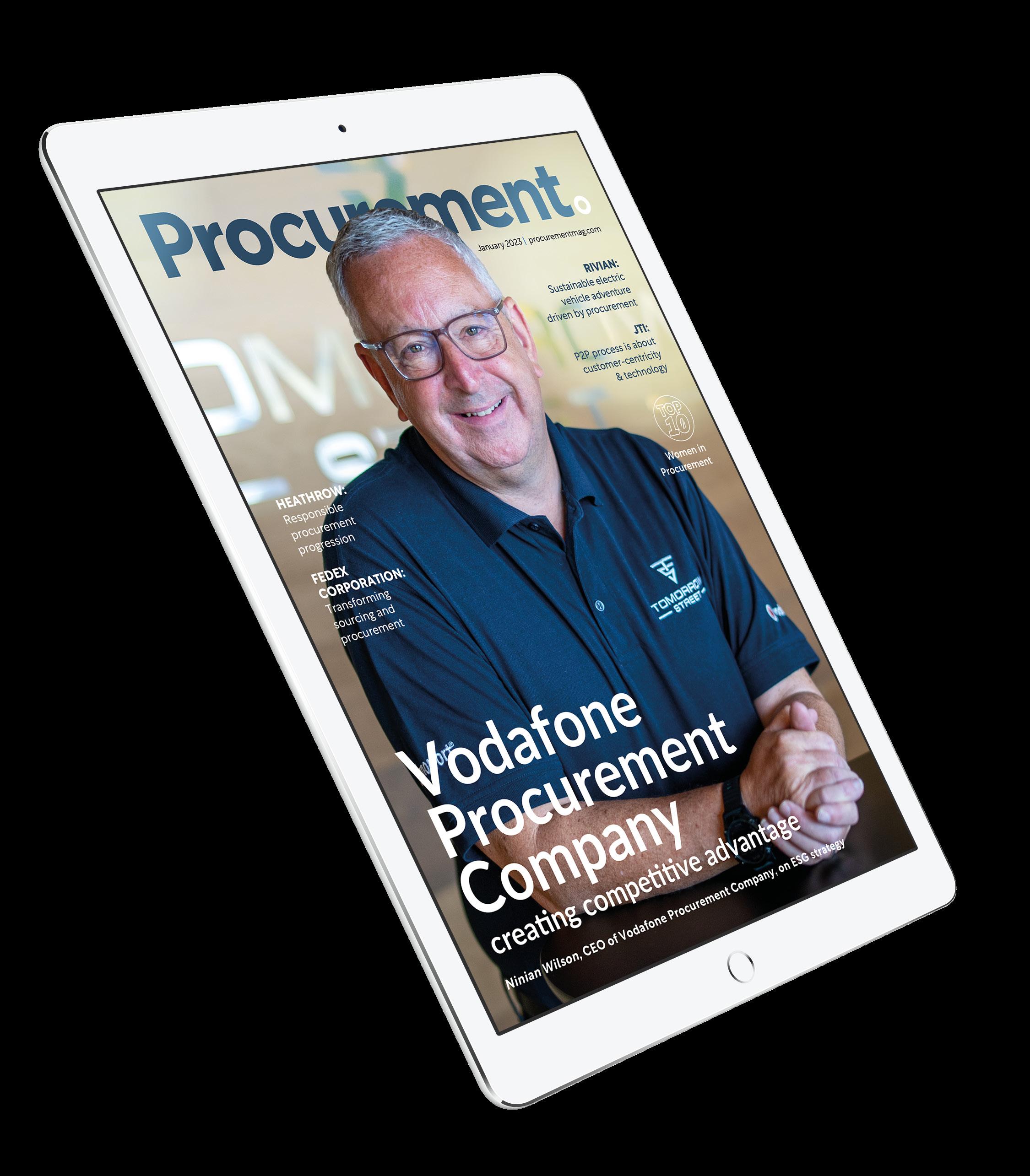
CRAIG KILLINGBACK
MEDIA SALES DIRECTORS
JAMES WHITE
EXECUTIVE VICE PRESIDENT
MIKE SADR
MANAGING DIRECTOR
LEWIS VAUGHAN
CEO
GLEN WHITE


The February issue of procurement magazine is focused on the avalanche of adverse impacts on procurement, and the master skiers manoeuvring the barrage.
What’s happening in procurement is in an odd sense, similar to life itself. When adversity strikes, those who throw up their hands in despair, will inevitably succumb to its incursions.
But the planner; the strategiser; those with the will to overcome can, and have - not only survived the hardshipsbut have invariably transmuted them into opportunities for growth and exemplary success.
From solving staff burnout to the exponentiality of Artificial Intelligence; from leveraging strategic sourcing to streamline processes through dire straits; from establishing circular economies and taking a leaf out of the books of the most sustainable companies - procurement is the newly appointed vanguard.
And Procurement Magazine shares their stories…

“AI can act as a force multiplier to the procurement team, shortening sourcing cycles and freeing up time to accelerate other activities”
DAVID DOYLE, CEO AND CO-FOUNDER, FORESTREET







Alisa Bornstein has been Chief Procurement Officer at Visa Europe since January 2021 and is a business-focused Procurement leader. She has 25+ years of experience in leading and transforming global and regional procurement in mature and emerging markets, across various industries including technology, telecoms, the semiconductor industry, fintech and finance.
This is exactly what Procurement needs. She is a recognised industry leader, listed among the top 15 of the Top 100 Global Leaders in Supply Chain.
In the procurement world, her name stretches far and wide…
In October last year, Bornstein took the stage at Procurement and Supply Chain Live London, to give a talk on the subject of: ‘Procurement Strategy: Managing Economic Downturn and Getting Ready for Recession’.

It made waves.
And this year, the event’s going to be even bigger.
PROCUREMENT & SUPPLY CHAIN LIVE LONDON 2023 is gearing up for take-off on 26th September at London’s Business Design Centre. Join the event disrupting Procurement and Supply Chain!

How is staff burnout impacting procurement?
80% of procurement professionals are being asked to do more with less
READ MORE
40% of employees are considering leaving their current employer within the next three to six months
READ MORE
READ MORE
IF AI IS AN ESG ISSUE, WILL PROCUREMENT HAVE TO CREATE IT?
Environmental and Social Governance, undoubtedly ethical issues, are now firmly placed within procurement's remit –but is AI an ESG issue…?
READ MORE
CIRCULAR ECONOMIES REQUIRE A RETHINK, NOT MERE LIP SERVICE
A recent Nature article looks at greenwashing. What's required for the circular economy to become a reality?
READ MORE
“Research suggests that the company is often the major cause of burnout”
Dr. Howard Price Head of Procurement Content, Skill Dynamics
“Enriched, contextualised, and actionable supplier data analytics that can help ensure proactive, faster and betterinformed decisions”
Gregor Stühler, Co-Founder and CEO at Scoutbee
“What happens to global supply chains when these scarce resources inevitably run out?”
Melanie Nuce
Senior Vice President of Innovation and Partnerships, GS1 US
AI and automation can add a huge amount of value to your organisation across all stages of the procurement process. Asked about the specifics, David Doyle, CEO and Co-Founder of Forestreet, says: “Firstly, AI can act as a force multiplier to the procurement team, shortening sourcing cycles and freeing up time to accelerate other activities.” Forestreet’s AI-driven SaaS platform enables realtime market and vendor discovery across geographies and languages, and Doyle is an expert in the field..
“The ability to rapidly identify and onboard an alternative vendor also provides the best defence against continuing disruptions. AI also helps de-risk the supply chain by surfacing anomalies and problems with vendors earlier in the process, before time has been invested researching these options or before supply challenges occur.”
Of course, all of this leads to better, datadriven decisions made at pace, as well as reduced inefficiencies and boosted innovation.
SKYWAY
Unified Traffic Management (UTM) and Altitude Angel –alongside BT, EE and numerous other UK tech start-ups – to create procurement game-changer
EUROPEAN UNION
EU establishes deforestation commodity due diligence rules, with palm oil, soy, wood, cocoa, coffee, beef and their derivatives to be tracked to reflect on company reputations
THAILAND’S COCONUT INDUSTRY
Following their third investigation into Thailand’s cruel coconut harvesting practices using monkey labour, People for the Ethical Treatment of Animals (PETA) is calling on consumers to boycott companies who source coconut products from Thailand.
According to a recent article by Supply Management, the UK government is spending around £400,000-a-day to store unused personal protective equipment (PPE) bought during the COVID-19 pandemic.
U P D O W N
FEB 2023
Since the ancient Egyptians used scribes to manage the supply of materials when building the pyramids as far back as 3,000BC, procurement aimed to be efficient. But human error and lack of data meant errors and waste.
AI translates into extreme efficiencies that stone, papyrus and rolodex don’t allow for.



Do you remember the invisible gorilla test? Participants were asked to watch a video of a basketball game and count the number of passes. Most of them missed the huge dancing gorilla that did a jig on the court.
AI has the power to solve this human ‘inattentional blindness’ by casting a wider cognitive net, creating revenue and savings opportunities.

Let’s be honest, procurement is full of so many mundane and time-consuming tasks such as monthly process detailing, performance reporting and yawn-a-yawnyawning.
AI can automate most of these processes so that teams can preserve their zest for more engaging tasks, putting their skills to better use.
Knowledge is power. Or, in this case, data.
Artificial intelligence can boost procurement organisations’ effectiveness by allowing them to capture relevant new sources of data, discerning patterns in already-existing or incoming data – or even scrawling the internet.




As big-data nodes build, so does the opportunity to connect the dots.
You have 500 suppliers for 50 different categories and they’re always fluctuating –as is the market.
Effective supplier relationship management relies on effective data, and AI as the processor of that data can allow for stronger and more optimised supplier relationships, from compliance to competitive pricing.
You hear much about silos and disconnected aspects of procurement – and one of the fundamental goals of transformational projects is to connect and synthesise these aspects – whether they be inter or intradepartmental.
AI has the potential to streamline and align internal procurement operations, as well as connect entire organisations to external units or even geographic locations.
Notice that, from the dawn of civilisation, procurement has become more effective in-step with technological development.
AI is the capstone of technological development, and with it, procurement takes its next leap.
“Farmers Feed The World!” declares Patricia Stroup, Chief Procurement Officer for Nestlé, who is a fine example of procurement’s pivotal role in the emerging world of ethical and sustainable sourcing
Patricia Stroup is the Chief Procurement Officer for Nestlé and has a long history in the dairy industry, with previous experience heading both North American and global dairy procurement for Nestlé, as well as earlier leadership roles at Hilmar Cheese Company in California and Maryland, and Virginia Milk Producers in Virginia.
Her career started as co-owner and manager of dairy farms in North Carolina and Pennsylvania. As Chief Procurement Officer of Nestlé, Stroup’s focus is on improving processes and has been instrumental in the forging of relations between Nestlé and dairy farmers, who she has always had an empathic relationship with.
For over 15 years, Stroup has helped lead the sourcing of diverse ingredients and materials for the world’s largest food and beverage company.
Together with her team, she works to be a part of transforming the sourcing of key commodities, not only for Nestlé, but for the industry as a whole.
She says: “Our work has brought together priorities on social responsibility, sustainability impact, business results, and building long-term partnerships. I’m a deep believer in forging diverse partnerships with a team of international experts, who I have the great pleasure to count as partners.”
She holds a Bachelor's degree in Communications with a cognate in Dairy Science from Virginia Tech, an MBA focused on Food and Agricultural Economics from Purdue University and a leadership certificate from the London Business School.
Stroup has held the role of Chief Procurement Officer (CPO) twice at Nestlé, first in 2015, and then again from 2020 onwards, following three years as Global Vice President and Head of Commodities.
When not navigating the complex procurement landscape, Stroup can be found catching up on the latest Freakonomics episode or enjoying the surrounding Swiss landscapes.
“OUR WORK HAS BROUGHT TOGETHER PRIORITIES ON SOCIAL RESPONSIBILITY, SUSTAINABILITY IMPACT, BUSINESS RESULTS, AND BUILDING LONG-TERM PARTNERSHIPS”


 Jack Macfarlane , Founder & CEO
Jack Macfarlane , Founder & CEO
THE
ARE PUSHING ORGANISATIONS TO BE MORE SUSTAINABLE. WHAT DO YOU THINK SUPPLY CHAIN AND PROCUREMENT ORGANISATIONS WILL NEED IN ORDER TO ACHIEVE THESE GOALS SUCH AS ZERO-CARBON SHIPPING BY 2040?
» The demand to "go green" across the board will only accelerate and the industrial business world has to be at the epicentre of this. Procurement teams in particular will have to find transparent ways of working. Transparency and access to information will drive collaborative processes which in turn encourage purchasing decisions that take into account carbon-related criteria.
In terms of what procurement teams need, I think that integrating carbon-related criteria in the selection process of suppliers will be key. Procurement processes in the industrial supply chain are often very complex, with high volumes of information being exchanged with suppliers before getting to any “award” decision. Furthermore, automating the informational flows in the evaluation process of selecting suppliers, such that carbon-
related criteria are not ignored, is essential. Businesses need real-time governance and visibility around how their procurement departments are making these choices.
To this end, businesses are increasingly adopting digital procurement/ RFx software to replace email chains. Buyers need to be able to find and source new suppliers who are willing to demonstrate sustainability credentials. Using digital platforms with low barrier engagement is important to keep supplier behaviour sustainable and introduce more competition into the market.
» Yes, I do believe so. We are already seeing our big partners adapting to these more innovative and sustainable ways of working. This change is already in motion and companies are increasingly being held accountable by public opinion and governmental commitments. Businesses are beginning to understand that the days of wasteful practices and unregulated carbon emissions are over. Better digital tools lead to greater transparency, which means that suppliers have nowhere to
“The demand to 'go green' across the board will only accelerate and the industrial business world has to be at the epicentre of this”
hide when it comes to emissions. This will accelerate our collective journey towards net-zero.
» The focus needs to be on transparency of the supplier selection process. This is absolutely critical in terms of ensuring that purchasing decisions by businesses are being done in line with their organisations’ goals, such as sustainability.

When this is carried out via email, businesses are pretty much blind to how their procurement departments are selecting suppliers. Up until now, there has been no control and no ramifications as procurement processes are not auditable.


When clear ESG standards are put in place within this procurement RFx process of engaging and evaluating suppliers, the pressure on the supplier market to ‘go green’ is increased (and commercially incentivised).
» It will take time, however ensuring that carbon and sustainability-related factors of suppliers are taken into account in the procurement RFx process will become more pervasive in how procurement departments are required to operate.
Factoring these in, alongside the more traditional supplier selection
metrics (cost, quality, time to delivery, etc), sustainability will come much more into focus - and likewise under much more scrutiny.
For example, we will start to see businesses putting equivalent weight on the carbon ramifications of their
suppliers in delivering products and services to them, rather than just focusing on the carbon ramifications of their own business in a silo (and thereby ignoring the supply chain which they rely on) In this endeavour, businesses will
engage more and more with technology providers who can facilitate these green objectives. We are already seeing software technology solutions grow in this areaboth established businesses like Ecovadis as well as more nascent companies such as Aklimate and Variable.co.







Suki Becker is Vice President for Procurement and Real Estate at the independent, trusted and unparalleled tech- and data-company, GfK.
For over 25 years, she has been working in the procurement and supply chain world and in her last few roles, has been responsible for the transformation of indirect procurement. Becker has a degree in Procurement & Supply Chain Management and has been a member of CIPS since graduating – in other words, she has procurement in her bones.
Becker started out as a Production Planner working in Automotive, where she learnt lean processes and management before becoming a Lean Consultant, and then moved to Procurement over 18 years ago.
Coming from a manufacturing background and never having worked in a service industry before, Becker “was really interested to understand how this industry works compared to manufacturing”, wanting to “understand some of the challenges of the service industry”.
Now VP for GfK, she understands the challenges more than most.
A sophisticated tech- and data-company, present in over 60 countries, GfK helps their clients solve critical business questions in decision-making processes around consumers, markets, brands and media. They also provide reliable data and insights through advanced AI capabilities at their foundation. But it doesn't stop there.



GfK have revolutionised access to real-time actionable recommendations that drive marketing, sales and the organisational effectiveness of their clients and partners.

‘A marketing company is a marketing company’, they say. But GfK stands apart from its competitors due to four crucial factors:
• Trust: GfK have one of the highest competences with data management and quality
• Signals from the noise: They provide actionable and measurable recommendations through analytics and technology
• Knowledge and expertise: GfK have a deep understanding of the market – as well as of psychology and consumer behaviour – having been around since the 1930s
• Always-on intelligence: GfK also offer digital solutions that put data science at the fingertips of clients, giving them a substantial advantage over competitors
“I wasn’t concerned about having one supplier for everything - but with having the right tools at the right cost for GfK”
SUKI BECKER VP PROCUREMENT & REAL ESTATE, GfK
How GfK reorganised its procurement and real-estate functions
Becker joined GfK in November 2020, when their procurement and real estate had already been combined under a single function.
“However, I realised that there were category teams, as well as some regional teams and 25 direct reports,” she says.
“Some roles, job descriptions and titles were not defined accurately enough. So, I spent time revising all the job descriptions and titles so that we had the same across categories and countries, then worked with HR to standardise the grading and work on a career path that helped individuals understand what they need to achieve to develop themselves. In order to further support their career journey, I invested in a digital learning program which is accessible to every employee in Procurement. This not only gives my team full access to professional training on core Procurement skills like negotiations, contracting and stakeholder management but includes focussed modules and certifications on Sustainable Procurement which is equally important for us”.
Becker created a category structure for GfK’s procurement functions and changed the roles of the regional heads, making them not only responsible for procurement, but also real-estate and facilities.
Two years ago, GfK had several different contract databases for leases and also the way of storing contracts was different. The company then streamlined these by moving to a modern building lease contract database.
At the same time, GfK executed a tender for the procurement contract database to enable a single, integrated system for storing
TITLE: VICE PRESIDENT
PROCUREMENT & REAL ESTATE
LOCATION: SWITZERLAND
Suki has led Procurement and Real Estate at GfK since November 2020. She lives and works in Switzerland and has worked in Global roles for the past 12 years. She started her career working in Logistics as a Production Planner in the Automotive Industry and continued to move industries, transitioning to Procurement over 17 years ago. Suki has worked in UK’s Ministry of Defence, UK Nuclear Energy, Pharmaceuticals, Industrial Engineering and Market Research, working within

Staying ahead in a fast-changing world can be challenging for businesses.

Read how Cognizant supports GfK in becoming a future-ready, modern business by building a scalable global delivery model with realistic delivery capacity and business SLAs/KPI driven operations. Learn more

Cognizant’s Anuj Seth – Chief Delivery Officer, Central Europe – discusses the company’s partnership with GfK, transforming for the modern age & sustainability
Most businesses are setting internal net-zero emission stakeholders and futureCognizant, it is time to take responsibility.
The company, which works alongside businesses to provide advisory and practical IT aid, is not only partnered with some key global businesses to offer assistance in digital transformation and other IT services to achieve net zero, but is also looking to mitigate its own operations and achieve the standard by 2030.


Net-zero initiatives at Cognizant include investing in renewable energy and increasing energy efficiency. Cognizant is ready to meet this target, with Anuj Seth certain they’re on course. Seth has over 20 years of experience in Europe’s
IT outsourcing industry, joining Cognizant in 2014. He’s currently Chief Delivery Officer (CDO) for the Central European region – the second biggest outside the US.
“I have held multiple leadership roles. In my current role, I am responsible for client delivery in Central Europe,” says Seth. “Cognizant engineers modern businesses and helps clients modernise their technology. We help our clients do what others can’t: operate with human insight, but at superhuman speed. So they get ahead, and stay ahead.”
Many businesses Cognizant works with are navigating their own net-zero ambitions, so the company is developing sustainable solutions for those global clients seeking to minimise their own carbon footprints – which is where Seth is keen to lead the change.
Partnership with GfK Cognizant has had a partnership with GfK since 2018. The two are working together in the development and support of core business applications like SAP and Salesforce, as well as applications supporting other business processes.
“We provide a global and scalable delivery model that isn’t just cost efficient, but that also helps GfK reduce time to market,” says Seth.
“We are part of their core IT team, supporting various transformation and modernisation programmes,” said Seth. “We are supporting GfK with specialised knowledge on application rationalisation and assessment; cloud transformation; leveraging domain knowledge in Information Media; and working to drive the realisation of the goals (of Gateway initiative).” Learn
contracts, which are now readily available to the team; an e-sourcing tool to move away from email exchanges with suppliers; and a supplier-management tool, where they could send questionnaires to the suppliers and collect data relevant to their onboarding onto their system.
“The utmost goal was having the right tools at the right cost for GfK.”
Becker says that, presently, there are a number of procurement people that concentrate on systems integration, thinking that procurement can be sped up if they just have the right system in place.
“I think that before jumping to a system solution a company needs to have the right processes in place first.
“One of the transformations that I brought about at GfK was to look at our procurement processes and deliverables, regardless of the system that was being used.

“Standardising and stabilising processes is far more important than the actual systems that are used. I would recommend doing this first and then introducing tools to support.”
Like many other companies, GfK differentiates between their suppliers by segmenting them into the categories of ‘strategic’, ‘preferred’ and ‘everyone else’.
“We have some strategic partners that we could not operate without; partners that we have regular business reviews with to ensure that we are working in tandem, as well as joint continuous improvement plans, with actions for both sides.
“A lot of times, what a customer does has an impact on supplier costs, and rather than just squeezing the supplier it’s a better and more effective strategy to work together towards reducing the inefficiencies and overall costs for the business.”
Becker explains that the advantage of segmenting the supply base is that it ensures GfK doesn't need to tender each and every time they buy goods or services.
But one thing is for certain, and that’s that, once again, supplier relationships are key.
“We have partners such as Cognizant that we have been working with for 4 years”, says Becker. “Cognizant are a strategic partner for IT; they support our Enterprise Applications Teams and take care of SAP, Salesforce and many other projects.”
Explaining this further, Becker states that GfK chose Cognizant because they have the right technical skills, knowledge and credentials in the Information Management space – and because Cognizant are committed to sustainability.
“We had a very consultative process with them during the tender phase, where they’d proven themselves cost-effective by leveraging a global delivery model. They’re also flexible and not always pointing to the contract – plus, they also know how to take ownership, and supported us well throughout the pandemic,

“One of the transformations that I brought about at GfK was to look at their procurement processes and deliverables, regardless of the system that was being used”
SUKI BECKER VP PROCUREMENT & REAL ESTATE, GfK
providing us with the right skills for the right projects. Although the world stopped, our projects didn’t”.
GfK have also made a lot of progress in terms of their Environmental, Social and Corporate Governance commitments. Though they have been submitting Ecovadis and CDP reports for some years, GfK had not submitted any quantitative data. This, of course, relates to authentic sustainability, which is about measurable and therefore actionable policies. Again, Data is key.
This is where Becker came in: “The first thing we did was to measure our carbon emissions. We nominated staff at each of our sites as sustainability partners to support data-gathering. We were collating the data into a single tool and interpreting it.
“We collected carbon-related data for 2019 and 2020. Once we understood this, we put a programme in place to first reduce our building footprint by accelerating hybrid working and consolidating sites in the same country, and then we implemented local initiatives like recycling and reducing plastic.”
“I also ensured that all my procurement staff were trained on ethical procurement so they could better understand the social, environmental and ethical impact within the total supply chain.”
GfK have now made a commitment to be climate neutral by the end of 2025, and, according to Becker, since they’ve reduced as much as they presently can, they now need to offset.
“2022 was the first year that we offset 25% of our 2021 emissions,” she says. “We invested in a technology project in India that also gives back to the people in the region by helping women work and providing children with education.
“I firmly believe if more companies took the initiative like we did, we could really make the planet a better place for us all.”
When asked about what she sees for her company and her role in the future, Becker stated “I see best-in-class cost, productivity, quality – so we have things done right the first time around and a faster response time to our clients.”
“We’re not looking for cheap because ‘cheap’ drives low quality, and the reason GfK is successful is because we provide a high-quality product, at the right cost and at the right time.

“Aside from that, we want partners that are committed to sustainability and understand that we need to work on this together.
“I think there is still a gap in the service industry. And, although GfK has come a long way on this in the past few years, some of our suppliers are still lagging behind.
“So, we’re investing time with our suppliers now to help them through this journey – as we’ve just been through it, we understand the requirements.”

“Standardising and stabilising processes is far more important than the actual systems that are used. I would recommend doing this first, and then introducing tools to support.”
SUKI BECKER VP PROCUREMENT & REAL ESTATE, GfK


Procurement teams are facing increasing challenges.
Over the last three years we’ve seen successive, overlapping waves of global disruption: a pandemic, extreme weather disruptions, a major war and prolonged supply shortages. Now economic conditions are deteriorating into recession in many parts of the world. Inflation is at its highest for decades. These are the most challenging times most procurement people have ever seen.
The environment is complex and these challenges all interact. For example, steps taken to address one problem can create problems elsewhere; onshoring may improve availability but increase cost; consolidating suppliers may reduce cost but create additional supply risk.
Dr. Howard Price, Head of Procurement Content at Skill Dynamics, says: “We’re now seeing cost inflation overtaking supply shortages as the biggest single cause of concern in procurement, although supply availability is still a problem for many. As a result, procurement professionals are taking a battering, juggling a wider range of challenges than ever. We’ve also seen

that some experts say that significant procurement people are leaving the profession altogether.”
The term that’s increasingly coming up is “burnout.” It’s not just another buzzword – the World Health Organisation has identified it as a global problem. Burnout happens when a person is repeatedly faced with work tasks that exceed the time and resources needed. The WHO says that burnout resulted in 2.8 million deaths in 2019.
Dr. Price says: “Unfortunately, that’s the tragic tip of a bigger iceberg since hundreds of millions struggle with chronic mental and physical health problems. These problems range from extreme tiredness, difficulties concentrating, anxiety, depression and other mental and physical disorders. The signs are that procurement will be a prime

“It’s never easy to recognise that you might be part of the problem, but research suggests that the company is often the major cause of burnout”
DR. HOWARD PRICE, HEAD OF PROCUREMENT CONTENT, SKILL DYNAMICS
target for burnout. Recent research by Procurious found 80% of respondents were asked to ‘do more with less’.”

The 5 main causes of burnout Research has highlighted five main causes of burnout: an unreasonably high workload, lack of control over work patterns, “always being on call”, unfair treatment by managers and lack of social support. “If we look at these factors,” says Dr. Price, “it becomes clear that action needs to be taken quickly to tackle this effectively, both at the individual and organisational levels.”
Companies are increasingly recognising the problem and investing in supporting employees with wellness programmes, meditation, relaxation classes, exercise, etc. “But the key drivers of burnout are overall workload, level of discretion and fair treatment of employees,” says Dr. Price. “So the danger here is that companies are addressing the symptoms of burnout rather than the causes. As one expert puts it: ‘You can't yoga your way out of burnout.’
“Looking at the individual perspective, it seems that the main way that individuals are dealing with burnout is by walking out – leaving their organisations. A large survey found that 40% of employees were considering leaving their current employer within the next three to six months. But unless they are leaving the workforce altogether, they may be leaving the frying pan for the fire!”

According to Dr. Price, the CPO needs to take a hard look at whether they are creating the
“The danger here is that companies are addressing the symptoms of burnout rather than the causes”
DR. HOWARD PRICE, HEAD OF PROCUREMENT CONTENT, SKILL DYNAMICS
right conditions for success or contributing to a toxic environment. “It’s never easy to recognise that you might be part of the problem, but research suggests that the company is often the major cause of burnout.”

He says that the questions we have to ask are:
• Is the team given enough discretion over managing their work?
• Are they given enough time to go offline from constant messaging traffic and actually solve problems?
• Is the CPO putting the right people into the right teams who can support each other and contribute different skills?
• Do the team members feel empowered to speak up and ask for help when overloaded and long before they become ill?
Another key aspect to help teams avoid burnout is training. “There’s clear evidence that training gives employees improved confidence, showing them that the company values them and is committed to their development,” he says. “Greater skill improves efficiency, providing a way to handle increased workloads. Upskilling will undoubtedly help them cope better with the unprecedented challenges procurement now faces.
“For the individual procurement professionals, I’d offer three pieces of advice,” he says.
“Firstly, take as much control over your work environment as possible. If clear priorities still need to be set, set priorities yourself. Communicate them clearly and assume silence means consent.
If possible, go offline from email and messaging communications for fixed periods of the day and use these for
quality thinking-time. Message chatter is the enemy of clear thinking.
Secondly, prioritise your personal health, take regular breaks and exercise. Don’t hesitate to speak up if you feel anxious, overloaded, or mistreated. And remember that your colleagues and suppliers may be suffering too, so watch for signs that others may be struggling and be supportive.

Finally, however challenging things feel right now, remember that these chaotic and difficult times present the perfect opportunity to learn and develop. Prevailing through challenging times helps us become more adaptable and build new skills we never thought we would have!”
Dr. Howard Price is Head of Procurement Content at Skill Dynamics. He’s an accomplished Chief Procurement Officer, with over 30 years of experience. He led the procurement practice at KPMG and holds a PhD for his research into strategic procurement.
“We’re now seeing cost inflation overtaking supply shortages as the biggest single cause of concern in procurement”
DR. HOWARD PRICE, HEAD OF PROCUREMENT CONTENT, SKILL DYNAMICS

 PRODUCED BY: GLEN WHITE
PRODUCED BY: GLEN WHITE



People often say that they fall into procurement. I didn't ‘fall’ into procurement; I made a very definite choice that this was the career path that I wanted to follow.”
These are the words of Jacqui Rock. Rock is NHS England’s Chief Commercial Officer and is spearheading one of the most significant reforms NHS procurement has seen since its inception. It’s a task of gargantuan proportions, but she has the expertise, the vision and the sheer tenacity to get it done through the NHS Central Commercial Function.
Rock points out that the private sector is very much profit-oriented, “especially in financial services, as you can imagine”.
“In the public sector though, we're extremely conscious of taxpayers’ money and of how we spend that money towards the provision of services.”
Beyond these key orientations, she notes that different sectors have different agendas, giving the example of the military (having worked in major programmes across the full military estate for the Army, Navy, Royal Air Force and Joint Forces Command), whose agenda is about protecting the realm.
With the NHS, the agenda is about providing the UK’s population with one of the best health services in the world, and Rock points out that these agendas come with their own particular challenges.
“Over the top of all of those sets of challenges, though, there are also those that we as commercial professionals constantly face – whether that be the challenge of supplier resilience, the supply chain and the availability of goods, the costs of inflation, or our supplier relationships.
“Every sector or industry has challenges that we, as commercial procurement professionals, need to know how to handle.
“The NHS is in a very challenging time right now. We’re in the midst of a difficult winter and COVID-19 is still with us. Then we have the significant impact of the cost-of-living crisis, higher inflation, increasing energy prices and the overall pressure that not only the NHS and our people are feeling, but also pressures that are being felt across the entire country.
The way that I'd like to summarise that is by pointing to Amanda Pritchard, our Chief Executive, who, at the NHS ConfedExpo in June 2022, laid out the priorities for the NHS under ‘the four Rs’.”
Jacqui Rock, NHS England’s Chief Commercial Officer, launched the NHS Central Commercial Function to reform NHS commercial practice through Collaboration, Communication & Partnership – here’s how
“First we have ‘Recovery’,” she says. “NHS staff are moving heaven and earth right now to deliver the Elective Recovery Plan, which is one of our biggest challenges. But this is also the most ambitious catch-up programmes in health service history.”
Where appropriate, and where patients are willing to be transferred, NHS England is implementing programmes to realise those transfers, enabling access to healthcare –not just between hospitals or trusts, but between regions – and is also strongly focused on spreading innovation in recovery and best practice across the entire country.

The second ‘R’ is ‘Reform’, and there are silver linings to dark clouds. “The pandemic supercharged the NHS with innovation,” says Rock. “We started using new drugs, new technologies and new ways of working to treat those with the virus, and to care or all of the millions that had numerous other conditions.”
The NHS commercial spend is in excess of £30bn per year. It's the largest spend in government

TITLE: CHIEF COMMERCIAL OFFICER, NHS ENGLAND
INDUSTRY: HEALTHCARE
LOCATION: UNITED KINGDOM
Jacqui was previously Chief Commercial Officer, Head of Corporate Services and Transition Director at the UK Health Security Agency. As a member of the NHS Test and Trace Executive Team, she was a driving force behind dynamic and rapid innovation and technology development in the supply chain. Jacqui was formerly director for the Defence Infrastructure Organisation at the Ministry of Defence and was a member of the Cabinet Office Commercial Function. She joined the UK government after 30 years in the financial services industry where she held multiple executive positions in companies including Credit Suisse, JP Morgan, Barclays and Bank of America Merrill Lynch.


The pandemic also emphasised the importance of collaboration between different NHS organisations in the service of patients. Rock emphasises this by noting that traditional barriers were really broken down.
The third ‘R’ stands for ‘Resilience’.
“At NHS England, we're now producing a Workforce Plan, which is going to look at people, skills and training – not just for what we need now, but for what we’ll need in the next five-to-ten years – and look out to the longer term.

“And then, finally, I'll touch on ‘Respect’. Healthcare is about experience, and it's about outcomes – which is why respect is absolutely vital.
“We respect our patients, which means making sure that they are informed and ensuring that they and their families are treated with dignity.
“And, of course, we respect the British taxpayer, which really, also from a commercial perspective, is critically important.
“We’re making sure that we’re spending public money really wisely, and, with all of these challenges, I constantly remind myself of the great public support for having a National Health Service.”
Rock is right. She refers to the recently published Ipsos MORI poll from April 2020, “which showed that 62% of the public feel that the NHS was the thing that made them the most proud to be British”.
How could one not be proud of this role? Rock’s position is one of great responsibility, and, equally, one that’s a great point of pride – and should be.
Jacqui Rock took on her role as NHS England’s Chief Commercial Officer on 1st of January 2022, and she feels that one of the most gratifying things about working in the NHS has been the people.
This is fitting for a National Health Service whose ultimate goal concerns the wellbeing of people, and in fact, begins with people, is
carried by people, and ends with people. A truly British and essentially democratic institution –and Rock is instinctively aware of this.
“Regardless of the pressures everybody is under, regardless of the challenges the NHS is facing, as I go around the hospitals, everybody is on mission. Everybody shares the same vision. Everybody wants to do the absolute best they can, even under the most difficult circumstances.
“And, for me, that's been absolutely gratifying. To work in an organisation that actually employs more than 1.2 million people, where everybody has the same drive and the same mission, is incredible.
Rock touches on The Carter Review that also took place in 2015, which concerned operational productivity in the NHS.
“It was a real key moment in the journey of NHS procurement,” she says. “The findings in the review changed the way we were recommended to work, and they informed our future ambitions.
Another significant event that occurred in this timeline was the Boardman review of government procurement in the wake of the COVID-19 pandemic, which was published in 2021.
Similar to the Carter Review, the Boardman Review looked at how the NHS works across spending taxpayers’ money and provided some significant recommendations for the future.

Some of its key findings concerned transforming supply chain resilience, integrated roles for commercial and procurement expertise within strategy formation, and, most importantly, procurement strategy as being central to policy making when the NHS are spending government money.
Rock says: “When it comes to procurement – and this also applies to the NHS – this is something I am dedicated to, and very much focused on enhancing and fixing. We have gathered and leveraged all of the lessons and reviews that have taken place to ensure that we deliver on the recommendations through the NHS Central Commercial Function.
“Going forward, in 2023, we've got the launch of the Procurement Bill, which is currently going through Parliament. The intention of the Bill will be to reform the UK's public procurement regime to streamline new procedures, and is intended to save time for public bodies and suppliers, allowing us to promote commercial outcomes and deliver more value for the money.
“The new Procurement Bill is fundamental to the NHS Central Commercial Function, which we’re rolling out so we can ensure that
“People often say that they fall into procurement. I didn't 'fall' into procurement. I made a very definite choice that this was the career path that I wanted to follow”
JACQUI ROCK CHIEF COMMERCIAL OFFICER, NHS ENGLAND
the NHS is ready and able to procure and leverage the market.”
In July 2022, Jacqui Rock launched the next evolution of the commercial service offer for the NHS - the Central Commercial Function (CCF), which aims to build a world class commercial community in the NHS. This will help unlock significant commercial opportunities for the NHS including leveraging NHS buying power where appropriate, delivering value for money for the taxpayer, ensuring clinicians have the right products and services they need at the right time, and tackling some of our commercial challenges such as supplier resilience.”

“This wasn’t something that we at NHS England have done alone. After spending months visiting trusts and seeing all the amazing commercial activity that’s taking place across the NHS, we've engaged closely with commercial teams right across the NHS, and have ensured that their feedback was incorporated into the development of the NHS Central Commercial Function.
Our collective ambition is a modern, effective, and efficient procurement function in the NHS that is among the best in the world, one that truly delivers taxpayer value, supports innovation, stimulates growth, and most importantly, delivers the highest quality of patient care.’’
Since the launch, Rock and her team have developed a robust programme plan and have governance in place. They’ve really been focusing on putting NHS commercial and procurement teams at the forefront of change, and raising their profile with many of their suppliers.
The NHS Central Commercial Function is comprised of 7 service offerings, which are already delivering across the system.
1. Commercial Best Practice – Enabling the NHS commercial community to access tools, expertise and cutting edge knowledge to deliver purchasing activities at every level of the NHS.
2. Governance, Assurance & Processes – Endorsed, standardised and complianceassured routes to market that wield NHS influence and promote innovation to deliver government priorities.
3. Technology and Data – Developing and adopting technology that provides the NHS with insight into procurement value and savings opportunities and outcomes. This will help to leverage, rationalise and shape the market.
4. Commercial Strategies – Creating a universal strategy across the NHS with clear commercial activities and routes to market that facilitates ease of doing business.
5. Sustainability & Innovation – Developing an NHS-wide approach to delivering net zero and social value, driving innovation and eradicating modern slavery in the supply chain, enabling stakeholder engagement and application.
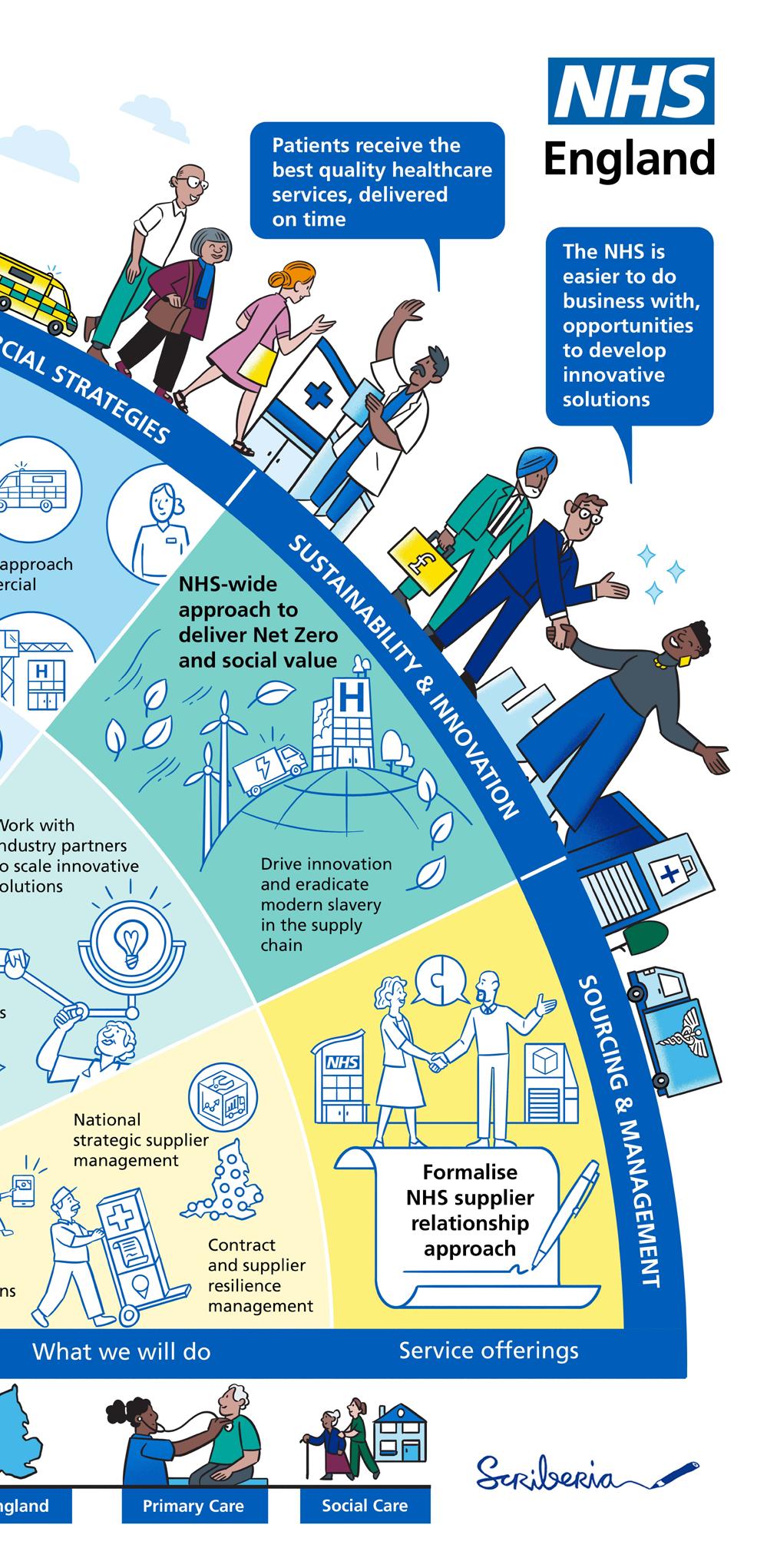
6. Sourcing and Management – Developing a strategic partnership approach that leverages the NHS buying power, shapes the market, drives innovation and resilience in the NHS.
7. People and Community – Embedding a unified community of procurement and commercial specialists who strive to deliver and uphold the NHS Commercial Strategy ensuring best value for money.
A key deliverable of the Central Commercial Function was introduced just weeks after its launch – and that was the universal rollout of the ecommerce system: Atamis.
NHS England made Atamis available to all health and family organisations, following funding from Crown Commercial Services and working in partnership with the Department of Health and Social Care in July 2022.
It is being used by a range of different organisations across the health family, namely (1) NHS Providers, (2) NHS Integrated Care Boards, (3) NHS CSUs, (4) national bodies (e.g. NHS England, UKHSA) and (5) the Department of Health and Social Care.
Rock says: “So far, 131 health family organisations have onboarded to the platform and nearly 29,000 suppliers have registered on the platform in order to respond to opportunities and manage their contracts with the NHS.”
“The key point of using a universal e-commerce system is that, by the end of the financial year we will have a really detailed view of commercial spend. We will know where we are spending, where the variance exists, and where we are getting better value for money.
“We will have a very good view of our supplier footprint across 220 trusts and thousands of primary care providers, so it's a really key initiative.

“We've got to be data-driven, because, ultimately, service provision is all about the data. Up to this point, it's been very hard to pull data together and actually have that overall NHS view – and this is going to enable us to do that.”
NHS organisations are already seeing the benefits. The London Ambulance Service (LAS) were one of the first to
“The real value of the NHS commercial team is in collaboration. It’s about bringing everybody across 4,000+ procurement and supply chain professionals together, so that we can agree on category strategies and move forward with a single vision”
JACQUI ROCK CHIEF COMMERCIAL OFFICER, NHS ENGLAND
onboard. Operating across London out of 70 ambulance stations, LAS has an annual addressable non-pay expenditure of around £150mn and over 340 active contracts valuing over £296mn.
Using a universal e-commerce system has allowed them complete visibility of their pipeline of procurement activity which means that the team can be more proactive with resource planning and plan upcoming procurements in a transparent and consistent manner.
One of Jacqui Rock’s key commitments is to implement a strategic supplier management programme to help the NHS to shape and leverage the market.
Rock says: “We should be leveraging the market. We should be able to drive innovation through our suppliers. We must focus on greater resiliency in our supply chain. We want to focus on eliminating waste, and one of the things that I found really enlightening when I came in here, is that we’ve got multiple contracts with the same supplier for the same thing, but with lots of variation.
“This is something that we need to work on collaboratively and in partnership with our big strategic suppliers to discover how we can just simply buy better in the NHS.
“So we've been spending a lot of time listening to suppliers and our key stakeholder Strategic Supplier Relationship Management teams to understand how this presently works and how we can align our strategies to make it as easy as possible to supply to the NHS.”

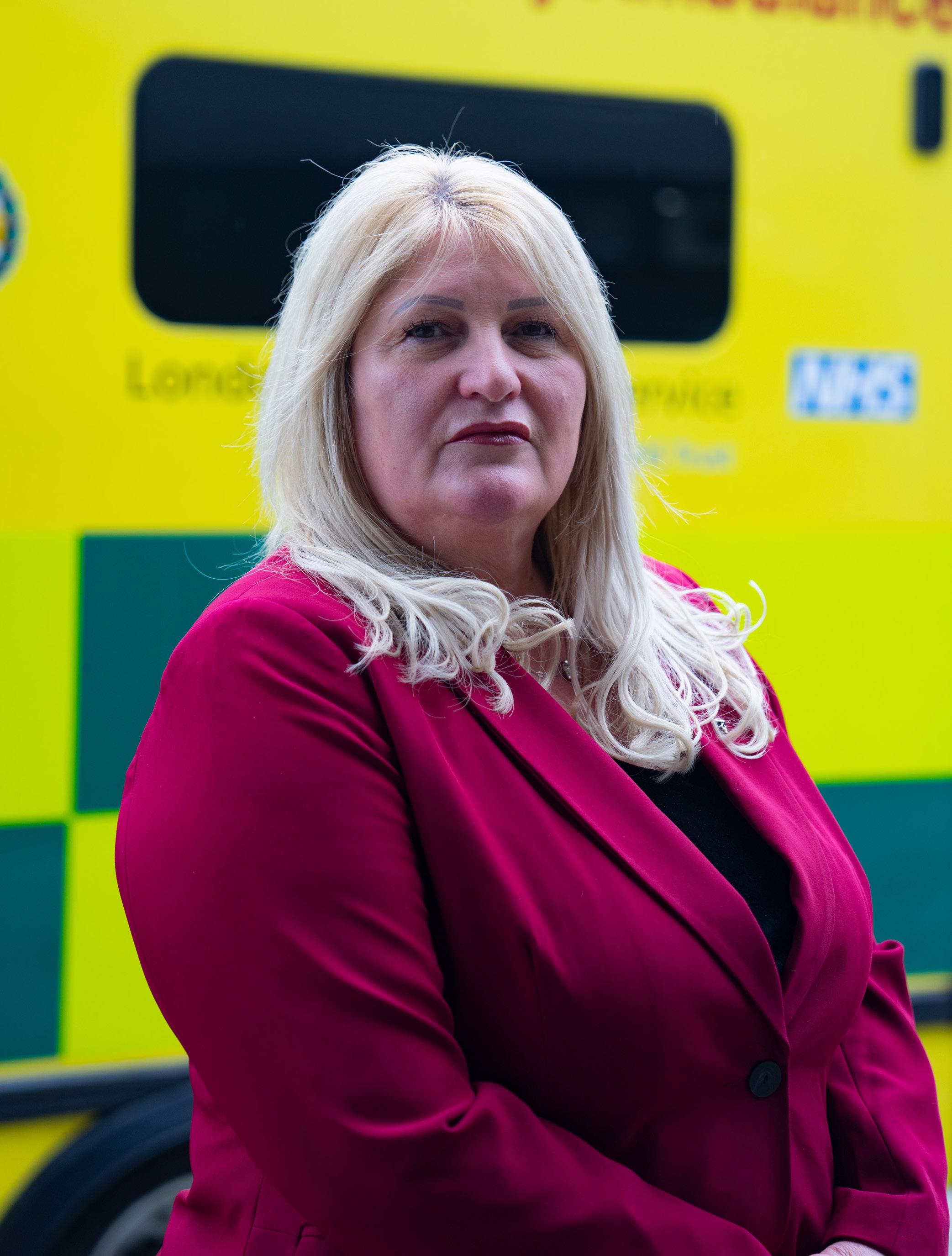
In October 2020, the National Health Service published a report called the Greener NHS Report, which announced that the NHS will be net-zero by 2040 and, for its carbon footprint plus, by 2045.
Over 60% of the total NHS Carbon Footprint sits within its supply chain and these include emissions from freight, the manufacturing of goods, catering, business services and construction.
“Our net-zero procurement plans are aligned with government policy,” says Rock. “From April 23rd, the NHS will adopt the government’s ‘Taking Account of Carbon Reduction’ plans PPN, which will require all suppliers of contracts valued over £5mn to publish a carbon reduction plan for their direct missions.
“We have also adopted the government social value model, which ensures that a minimum of 10% waiting on net zero and social value, is included in all tenders; The NHS Central Commercial Function team have been producing detailed guidance to support trusts with this.
“It's a new area for many of the trusts and certainly many of our suppliers, so we've
been ensuring we can deliver that support right the way through this process.”
The reason that Rock set up the NHS Central Commercial Function was to take a good hard look at how they buy across the NHS, so that taxpayer money is being spent in the most efficient way. Their commercial spend is in excess of £30bn per year. It's the largest spend in government, and they are spending in a very federated way because the NHS isn't just one organisation. The NHS is already one of the most efficient health services in the world, spending 2p in the pound on administration, compared to 5p in Germany and 6p in France, but Jacqui Rock says that there are opportunities to go further.
“We want to make sure that NHS bodies and trusts have the autonomy to run their hospitals and their clinical pathways.
“But the real value of the commercial team is in collaboration: it’s about bringing everybody across 4,000+ procurement and supply chain professionals together, so that we can agree on category strategies and move forward with a single vision.
“What I am really doing is getting people to work together as commercial professionals.
“It’s about collaboration, it's about community, it's about partnership.
“Our buyers are very gifted – they know what they're doing – but they will be supercharged in their effectiveness once brought out of their silos and enabled to see the bigger picture, for a better, stronger and much more effective NHS.”
“Every sector or industry has challenges that we as commercial procurement professionals need to know how to handle”
JACQUI ROCK CHIEF COMMERCIAL OFFICER, NHS ENGLAND

Gregor Stühler, Co-Founder and CEO at Scoutbee demonstrates how Strategic Sourcing can empower Procurement Executives to take control in times of uncertainty
 WRITTEN
WRITTEN
BY:
ILKHAN OZSEVIMThe pressing issue of strategic sourcing:
“I think, if we’ve learned anything over the last couple of years,” says Gregor Stühler, Co-founder and CEO at Scoutbee, “it’s that nothing is certain, except perhaps, more uncertainty. Strategic sourcing can help build stable supply partnerships to keep organisations’ operations running smoothly in tumultuous times.
“It can also help when it comes to risk management, as closer supplier relationships help companies identify and resolve potential problems quickly, before they become major issues. This also involves seeking out alternative sources in case natural disasters, geopolitical events or other crises cause disruptions in the supply chain.”
Stühler says that strategic sourcing allows companies to align their sourcing goals with their business goals, increasing efficiency and minimising risk within the supply chain. “Companies can use strategic sourcing to make their procurement processes less myopic and cost-focused. Once they have a sourcing plan, it will enable them to develop a flexible, agile system that adds to the overall value of their business’s long term goals and strategies.”
According to Stühler the first step is to analyse business needs and historical spending, followed by drawing up a strategic plan, and then carrying out data collection and market analysis to determine which suppliers to work with. “Once the suppliers have been chosen, strategic sourcing also involves continually evaluating performance
Gregor Stühler, Co-founder and CEO of Scoutbee
“COMPANIES CAN USE STRATEGIC SOURCING TO MAKE THEIR PROCUREMENT PROCESSES LESS MYOPIC ANDCOSTCOST-FOCUSED”-FOCUSED


Ensuring the agility and resilience of your business and supply chain starts with identifying the risks.

Download our report to start your resilience planning today.
Download ASCRI Report
and enhancing the process on an ongoing basis,” he says.
“This practice of putting suppliers under the microscope, based on more than just their product costs, also means that business goals can be matched with the best possible suppliers in order to achieve them, creating high value at low cost.”
“I believe it’s extremely important.” says Stühler. “In terms of driving sustainability and broader ESG goals, this can be very tightly defined in strategic sourcing activities.”
Regardless of how supplier sourcing is conducted – manually or using technology – organisations are increasingly taking into account what’s important to their overall
ESG objectives – sustainability, diversity, risk, etc. They are paying more and more attention to ensuring that this is clearly communicated when scouting for, and selecting new suppliers, potentially going down to a very detailed level of shortlisting, awarding contracts, and weighting the evaluation of those awards with specific ESG and sustainability criteria.
“Indeed,” says Stühler, “some public sector organisations are mandating a minimum percentage of total award criteria to ESG areas, such as social value.
“Regarding the existing supplier base, it’s much more of a partnership approach I think, doubling down on existing relationships, becoming a customer of choice, and really sharing the overarching organisational goals and objectives.”

“REGARDLESS OF HOW SUPPLIER SOURCING IS CONDUCTED –MANUALLY OR USING TECHNOLOGY –ORGANISATIONS ARE INCREASINGLY TAKING INTO ACCOUNT WHAT’S IMPORTANT TO THEIR OVERALL ESG OBJECTIVES –SUSTAINABILITY, DIVERSITY, RISK, ETC”
GREGOR STÜHLER CO-FOUNDER AND CEO SCOUTBEE
This involves working together in an innovative and collaborative environment to try to align the supply chain’s behaviour and activities in key ESG areas, sustainability being one.

Stühler says he thinks the main barrier to fullscale strategic sourcing is a lack of actionable data and therefore, a lack of visibility. “Lacking accurate data, many firms have to rely on educated guesses, or on replicating past decisions,” he says. “They probably have an instinct for which of their suppliers are the best, but wouldn’t it be great to know, at a glance, how each is performing? Which suppliers have the best prices and offer the
“IF A SUPPLIER FAILS TO DELIVER, WHERE DO YOU GO NEXT? TRUSTING INTUITION ALONE ISN’T ENOUGH WHEN IT PUTS YOUR SUPPLY CHAIN, AND ULTIMATELY YOUR CUSTOMER SERVICE AT RISK.”
GREGOR STÜHLER CO-FOUNDER AND CEO SCOUTBEE
AT RISK
best lead times, and how they are doing on metrics such as ESG, risk, or diversity?
“Additionally, if a supplier fails to deliver, where do you go next? Trusting intuition alone isn’t enough when it puts your supply chain, and ultimately your customer service at risk.”
Stühler says that more than ever, procurement and supply chain professionals must get their hands on “enriched, contextualised, and actionable supplier data analytics that can help ensure proactive, faster and better-informed decisions, in turn, driving resilience and competitive advantage.” He says that this is one thing that he wants his audience to know.
Scoutbee was founded on the idea of improving supply chain resilience by using Artificial Intelligence and Big Data to transform the way organizations use supplier data to discover and connect with suppliers.

Scoutbee was the first start-up ever to be “Highly Commended” in the technology category at the 2019 World Procurement Awards.
To date, Scoutbee has raised $76m in funding from investors that were impressed by how Scoutbee, as a pioneer and leader in AI-driven supplier intelligence and search, empowers procurement for the world’s toptier companies. Awarded Gartner “Cool Vendor” 2020.
Ranked no 31 in the Procurement Magazine’s top 100 companies 2022. Scoutbee’s objective is to support innovative procurement teams around the world with smarter supplier data. To enable strategic sourcing activities to become faster, more proactive, and more efficient in order to mitigate risk, reduce costs, drive innovation, and support a more sustainable world.
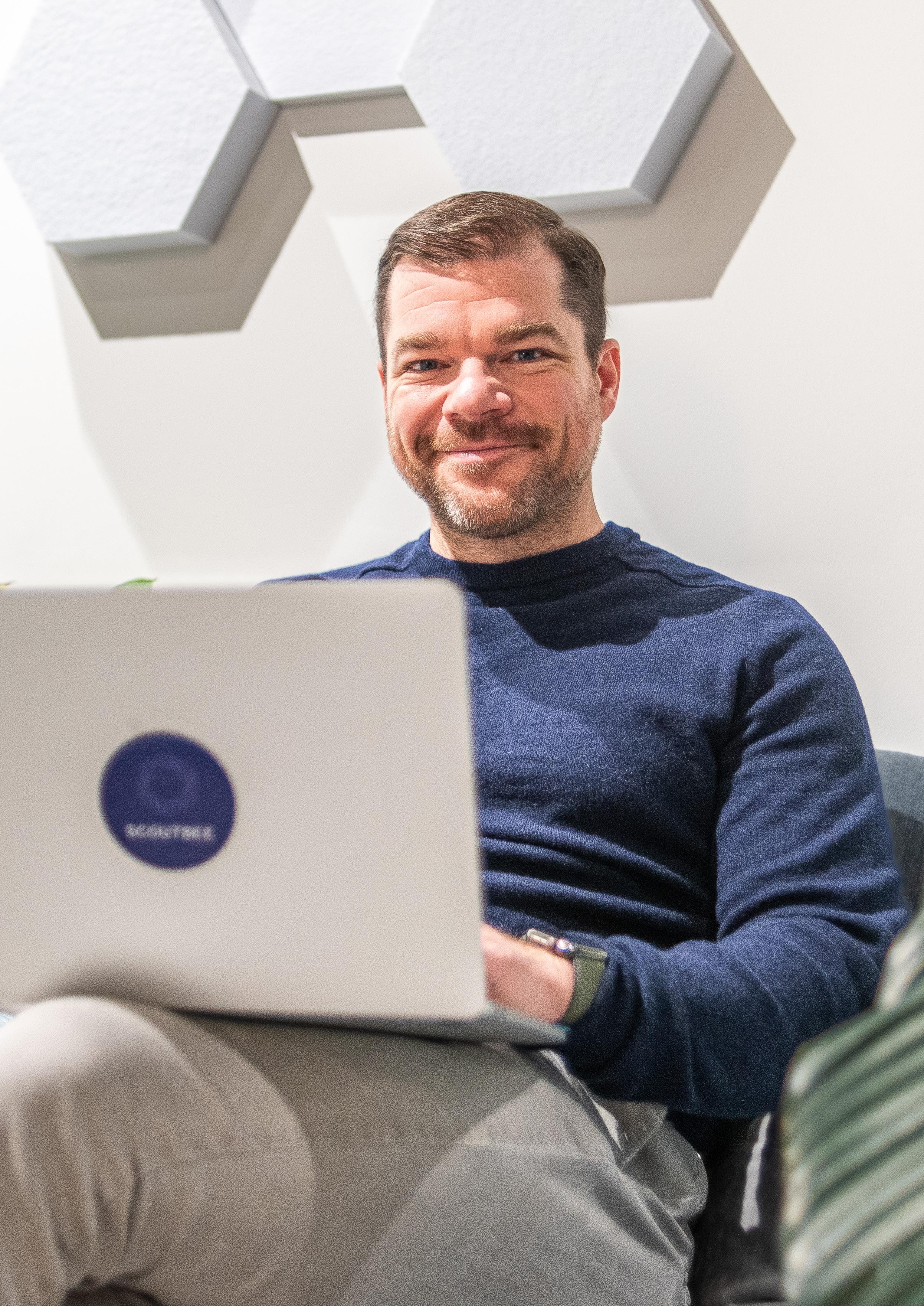
“Imagine if you could know exactly when a boat docks – with the parts you need –based on when you order, the availability of the part at the supplier’s facility anywhere in the world, and other multi-formatted, multi-sourced data? This is the kind of value that multi-structured analytics and applied observability will bring to procurement teams next year and beyond.
“It’s absolutely fundamental to access and layer enriched data from a comprehensive variety of sources – your ERP system, ESG scores, risk assessments, financial risk ratings, shipment data, diversity certifications, and more – to create a 360degree view of your supplier base.”
Stühler advises that, “this visibility will enable you to handle today’s disruptions, while giving you a head start in tackling whatever’s at the top of your agenda for tomorrow”.
Digitalisation is transforming strategic supplier sourcing. Many procurement teams have been tasked with agility, speed, and scalability to address the impacts of
procurement disruptors. Stühler concludes: “The organisations who thrive in this new landscape will be the ones who embrace digital transformation, AI, and big data in their sourcing processes and use this as an opportunity for growth, efficiency, and sustainability.”
Gregor Stühler is Co-founder and CEO of Scoutbee, the leading AI-powered supplier intelligence and discovery platform. His experience in the automotive and tech industries, combined with his experience in sourcing industrial components, has provided him with a strong base knowledge of strategic procurement. His passion for tech-enabled procurement has propelled Scoutbee to the forefront of the sourcing market, and he has grown Scoutbee’s customer base to include Audi, Airbus, Siemens, Heidelberg, Unilever, and Bosch. Powered by AI and continuously curated data, Scoutbee traces millions of supply chain data points to bring together supplier information with deep insights and a simple, digital process for strategic sourcing.
“I THINK, IF WE’VE LEARNED ANYTHING OVER THE LAST COUPLE OF YEARS, IT’S THAT NOTHING IS CERTAIN, EXCEPT PERHAPS, MORE UNCERTAINTY”
GREGOR STÜHLER CO-FOUNDER AND CEO SCOUTBEE


 SADR
SADR

Hetal Mehta is the founder and CEO of iQuantum Inc., a modular, modern procurement platform. As the leader of iQuantum’s woman and minority owned business, Hetal works closely with all internal teams, customers, partners, and the iQuantum Advisory Board of industry champions and practitioners.
For many years, Mehta worked as a developer and consultant to procurement teams. Through that experience she recognised the need for a more sophisticated and user-friendly procurement solution, “one that does all the efficient and effective consolidations, automation and workflows – but also helps guide alignment between buying decisions and larger strategic corporate goals like increased diversity,” she says.
“My in-depth experience and understanding of supplier diversity led me to realise that customers struggle with finding appropriate suppliers and are prone to continuing business with existing ones – even if that is not ideal.

“With iQuantum our goal is to leverage machine learning and AI to provide a modern procurement platform with access to the largest global supplier database that includes diverse and sustainable supplier options. This helps customers build a more resilient and robust supply chain.”
iQuantum Inc. is a modern Source-to-Pay platform designed to meet today’s procurement needs for Supplier Relationship Management, Diversity and ESG Sustainability tracking and reporting. They provide the tools and transparency to align spend decisions to strategic corporate goals.


Mehta says: “There is no single provider on the market who competes with us pinto-pin.” iQuantum is the only SaaS platform to provide:

• Complete Supplier discovery to Pay on one platform WITH modern ESG and full diverse supplier management.
• New supplier discovery from a database of millions of global suppliers to increase supply chain resilience and support new product introduction (NPI) sourcing
• Integrated supplier communication and collaboration with in-built Chat and conversation storage for future reference and context

• Modern approach to complete strategic sourcing for indirect, direct and new product introduction with internal team collaboration
• Rich contracts, procurement, and spend management analytics
• Integrated Tier 1 & Tier 2 Diversity and ESG Sustainability reporting and benchmarks
“Prioritising diversity in your employees and your supplier base as a part of ESG is integral to the growth and future trajectory of the company – employees, leadership, investors, stakeholders, and customers seek brands that are improving their profiles”
• Government and Customer reporting along with Subject Matter Expertise by fine-tuning their diverse spend tracking and achieve the elite Billion Dollar Roundtable or BDR
• Diverse and small supplier visibility to iQuantum’s Fortune 500 customer base, including support for supplier marketing of their products and catalogues

• Modular licensing approach and enterprise interoperability to accommodate each customer’s needs, budgets, and existing system investments
• Single code base for quick implementation, easy maintenance, and simple configuration with a sophisticated, userfriendly user experience
• Access to global database of suppliers including diverse/non-diverse and green suppliers for procurement to add to supply chain and achieve savings
• Better alignment, reduced risk, and increased compliance across procurement, finance, and corporate legal
TITLE: CHIEF EXECUTIVE OFFICER
LOCATION: IQUANTUM
Hetal holds a BS in Electrical Engineering, and, prior to founding iQuantum, she logged more than 15 years of IT consulting experience with financial firms on Wall Street. Her technical background combined with her sharp domain expertise has been instrumental in building iQuantum; engaging industry-leading customers, attracting and mentoring top engineering talent, and delivering top-class business results, she has driven iQuantum’s growth over the years. Hetal Mehta has been recipient of Steve Awards and Women of the

The importance of diversity in procurement and supply chain and the role of iQuantum McKinsey reported that working with diverse suppliers leads to an 8.5% in cost savings, which is more than the 3 - 7 % savings most procurement organisations realise.

“Prioritising diversity in your employees and your supplier base as a part of ESG is integral to the growth and future trajectory of the company – employees, leadership, investors, stakeholders, and customers seek brands that are improving their profiles,” says Mehta.
Qualified diverse suppliers bring savings and better service to customers. Procurement leaders have recognised this, and are looking at ways to increase their diverse supplier base (increasingly Tier 1 and Tier 2 diversity reporting is becoming a mandate across different industry verticals).

“Every purchase made needs to be aligned to strategic corporate goals and help to move the needle. Increased government regulation and consumer scrutiny of corporate brand spending has increased the need for a new procurement approach”
She says: “We see these two tiers in Manufacturing, and in Law firms it typically comes from customers setting goals to win RFPs, while for the Healthcare and Pharmaceutical industry the stimulus comes from the government and encourages organisations to negotiate diversity goals and to report them annually.”
iQuantum’s automated customer and government reporting solution is helping customers achieve this. “This automation,” says Mehta, “and our in-depth subject matter expertise in exclusion criteria rules, is also helping customers achieve their goals and get on to the prestigious Billion Dollar Roundtable BDR. Our global database of suppliers allows customers to source from new diverse suppliers to meet their goals.”

Businesses today need help driving alignment across divisions and teams. Core brand values and strategic goals need to be surfaced in all corporate decisions – but most importantly in spend decisions. Mehta says: “There is a critical need to meet the diversity spend and ESG sustainability goals being set by leadership and closely tracked by government regulators and investors.
“Our customers like to work with us due to our commitment to customer success, our responsiveness to customer needs and our budget-friendly pricing.” This approach relates to the findings in the McKinsey report concerning better savings and an enhanced overall experience when working with diverse suppliers.

Supporting women-owned businesses
iQuantum has subject matter experts to partner with diverse businesses (women, minority, veteran, disabled, LGBT) around the globe to provide guidance on the certification options and process; enriching their supplier profiles to maximise their reach and relevance to upcoming RFQs (Request For Quotes) RFPs (Request For Proposals) and RFIs (Request For Information), or Direct Material Sourcing.
Mehta says: “We also assist certified businesses in getting catalogue-ready, to simplify enterprise purchasing of their products. Our regular supplier outreach, newsletter supplier spotlights and social media channels promote and support women, minority, and other certified businesses. It’s part of our mission and our DNA.”
Adapting to procurement developments


Procurement needs today have changed. They need a platform which addresses
McKinsey reported that working with diverse suppliers leads to an 8.5% in cost savings, which is more than the 3-7% savings most procurement organisations realise.
today’s modern challenges of Diversity and ESG Sustainability tracking. “Every purchase made needs to be aligned to strategic corporate goals and help to move the needle,” Mehta says.
“Increased government regulation and consumer scrutiny of corporate brand spending has increased the need for a new procurement approach.”
“Customers benefit from our “Only Buy What You Need” approach which helps them avoid paying for unused functionality. Our rapid onboarding makes the user experience better and decreases the time to ROI.”
“If you are looking for a modern modular procurement platform to meet today’s procurement needs, iQuantum is the solution.”


“Our customers like to work with us due to our commitment to customer success, our responsiveness to customer needs and our budgetfriendly pricing”
iQuantum’s Strategy is best seen according to 3 main facets -
1. For Diversity, their approach is two-fold. Firstly, they want to help companies find, on-board and buy from diverse suppliers easily. Secondly, they aim to help diverse suppliers gain exposure to potential customers by giving them a platform to market their products and services

2. For ESG, iQuantum’s goal is to help make this an integral part of the company and not just an afterthought to meet reporting requirements. For example, they help companies assess their GHG emissions footprint early in their product development when designing new products or building new facilities
3. For Source-to-Pay, iQuantum’s goal is to make the entire process seamless. They provide a single platform upon which companies can execute all aspects of procurement, ie Finding suppliers (Q-Discovery), Qualify (via RFx and Direct Material Sourcing for Manufacturing), Onboard (Contracts), Procure (Order Management), Monitor (SRM), and Control (Spend Analytics), but also allow modular consumption. They also aim to help companies preserve their existing investments, if they require, by integrating with any systems they may already have installed
The Diversity market is moving from being driven by government mandates, to one where it is an integral part of company strategy. Mehta believes that iQuantum is, “in the early stages of realising the full potential of this market.”
She says: “For ESG, this is truly a nascent but swiftly developing market.
Companies simply don't have a good way of assessing their GHG footprint, and we are one of the few solutions that can help them achieve this. We see considerable promise in helping companies assess their environmental footprint.”
In the Source-to-Pay space, iQuantum’s customer conversations have proved that legacy procurement providers are not only unable to meet today's modern business requirements, but also have yesterday's UX. Mehta says: “We are solving this problem.”

Finally, on the subject of regulations, Mehta says: “There are regulations going into effect and being defined every single day. We are keeping a constant eye on any changes that may impact rules, reporting, and best practices.

“iQuantum always keeps the SEC, SBA, CDP current, and up-to-date, helping customers to adapt and remain agile to the changing environment.”

HETAL MEHTA CHIEF EXECUTIVE OFFICER, IQUANTUM
“There is no single provider on the market who competes with us pin-to-pin”
Aleksander Hajdas, Lead of JTI’s Procure-to-Pay (P2P) programme, on why P2P is so much more than just integrating procurement with accounts payable
WRITTEN BY: ILKHAN OZSEVIMAI and automation can add a huge amount of value to your organisation across all stages of the procurement process. Asked about the specifics, David Doyle, CEO and co-founder of Forestreet, says: “Firstly, AI can act as a force multiplier to the procurement team, shortening sourcing cycles and freeing up time to accelerate other activities.” Forestreet’s AI-driven SaaS platform enables real-time market and vendor discovery across geographies and languages, and Doyle is an expert in the field.
“Utilising AI can also broaden the supply base, scanning and analysing more potential suppliers in a fraction of the time. This boosts innovation by surfacing more pioneering vendors. Commensurately, leveraging AI for supplier identification can
The e2open connected supply chain platform provides the end-to-end visibility and collaboration you need to tackle unpredictability. Build trust and confidence with your channel, supply, logistics, and global trade partners. Take control of supply constraints through direct procurement and meet customer commitments in the face of disruptions and scarcity. The connected supply chain. Moving as

increase supply chain diversity. Using such a broad dataset can remove proximity bias by including a wider range of options, and removes the need to rely on the opinion of a single group of experts.
“The ability to rapidly identify and onboard an alternative vendor also provides the best defence against continuing disruptions. AI also helps de-risk the supply chain, by surfacing anomalies and problems with vendors earlier in the process, before time has been invested researching these options or before supply challenges occur.”
Of course, all of this leads to better, datadriven decisions made at pace, reduced inefficiencies and boosted innovation.
Most people construe AI and automation in terms of either Hollywood renditions or through the narrow windows of their proximate experiences. Not missing the opportunity to put the question about these
“NEW ETHICAL CHALLENGES WILL ARISE AS AI TAKES ON GREATER RESPONSIBILITIES IN PROCUREMENT PROCESSES, SUCH AS QUESTIONS AROUND AI EXPLAINABILITY AND TRANSPARENCY”
DOYLE, CEO AND CO-FOUNDER, FORESTREET
misapprehensions to his expertise, we ask where the reality diverges from common misconceptions.
Doyle says: “The first thing that comes to mind here is that ‘AI’ itself is an umbrella term, which includes a wide variety of different software and algorithms.
“Maybe when we think of AI, we jump to images of self-driving cars or virtual assistants, like Alexa and Siri. But AI is much wider than this. Talking about AI in procurement really refers to any software
that has the capacity to learn specific tasks. These technologies can include Machine Learning (ML), a type of patternrecognition AI which uses past behaviour to make decisions or predictions, and Natural Language Processing (NLP), specific algorithms that can analyse, read and understand human language. Clumping these different technologies together can cause confusions for operational teams who are not experts in this area.
“AI CAN ACT AS A FORCE MULTIPLIER TO THE PROCUREMENT TEAM, SHORTENING SOURCING CYCLES AND FREEING UP TIME TO ACCELERATE OTHER ACTIVITIES”
DAVID DOYLE, CEO AND CO-FOUNDER, FORESTREET
“Another misrepresentation building on this confusion,” says Doyle, “is that we still often have a tendency to view AI as something highly futuristic. Yes, large amounts of AI technology are incredibly cutting-edge. But AI technologies are already embedded into many procurement processes and are used every day across almost every aspect of our lives.”
According to Deloitte’s 2021 Global Chief Procurement Officer (CPO) Survey,
50% of CPOs say their company is using or piloting an artificial intelligence or cognitive intelligence solution. “There is still a long way to go,” says Doyle. “But AI is not something in the distant future. It’s an already well-developed technology that many procurement functions have implemented. And any companies not already using AI solutions really need to think seriously and quickly about how they can start leveraging this technology, or else risk falling behind.”
When asked about what he believes the main barriers to successful AI/Automation adoption are, Doyle says: “Likely, it will be many of the same spectres that have haunted digital transformation strategies throughout the decades: poor communication between siloed departments, concerns about costs and complexity, lack of knowledge from the leadership and the reluctance to change ingrained habits, among others.
“Talent-related and cultural issues pose one of the largest challenges for organisations looking to adopt new technologies.”
Putting his scientific thinking to the issue at hand, he says: “To be fair, some of these fears are well founded. Historical patterns can ‘drift’ from reality, so the models need testing and maintenance. New skills are required for this – even if it is just to understand what to watch out for.
“Finally, we need to think of augmentation as well as automation. We often talk about the latter when reducing the headcount amongst your colleagues is an appealing prospect to only a very small number of colleagues. We need to focus instead on how AI can augment the procurement function, giving them the ‘superpowers’ to delight their business customers. This simple shifting of perspective will move the mood-music from trepidation to enthusiasm.”
In summary, Doyle says introducing AI will quickly make your procurement processes more efficient, powerful and easier, and that ensuring internal and external stakeholders are brought along –and that human expertise remains central to the process – can alleviate some of these challenges. “Also, don’t be afraid to start small,” he says. “You don’t need to overhaul everything all at once to immediately
start gaining significant advantages from using AI in your supply chain. Adopting specific AI tools to supplement different parts of the procurement process can be an effective approach.”
Doyle believes that AI will play an important role in driving greater productivity and sustainability. “One immediate advantage,” he says, “is that using AI can ‘supercharge’ and speed-up the procurement process. AI can identify patterns, dramatically cut
DAVID DOYLE, CEO AND CO-FOUNDER, FORESTREET
“THE PROCUREMENT FUNCTION ITSELF IS IN FLUX”
sourcing cycles and automate mundane tasks, freeing-up time for members of the procurement team to take on a more strategic role.
“In terms of sustainability, AI again will have a big part to play. As Environmental and Social Governance (ESG) become increasingly important, procurement teams will need to be more vigilant about suppliers, and modify the selection criteria to incorporate these concerns. Using AI can assist with this process; enabling companies to prioritise suppliers with strong ESG credentials right from the start; saving time and effort, and ensuring a more ethical portfolio of vendors.”
When asked: “What’s one insight that you would like to share with your
audience?”, Doyle laconically replies: “The end of stability.” He continues: "We all know that we are living in a world where economic shocks will continue, but are we building our AI roadmap in this context or are we still focusing on rationalisation and optimisation? The sudden, ready availability of high-quality data, means more accurate, strategic decisions can be made internally – and in response to changing business needs. Companies are increasingly going to be demanding up-to-date and even realtime information that they can generate themselves, and it’s likely to become more and more noticeable if procurement teams are basing decisions on outdated, historical data and trust in existing trends. We need to
bring this new context into our technology roadmap for procurement.”
The future of AI and Automation in Procurement
Doyle says: “The future of AI and automation in procurement is exciting. There are likely to be huge steps and advances in the capacities of AI in years to come, from improved decisionmaking capabilities to AI being able to successfully play negotiating roles.
“New ethical challenges will also arise as AI takes on greater responsibilities in procurement processes, such as questions around AI explainability and transparency. But perhaps the most dramatic change is simply going to be how we view AI in procurement.
More and more, AI is just going to become the way that things are done.”
“The procurement function itself is in flux,” says Doyle. “Procurement teams have been dragged into the spotlight as logistics disruptions and production shifts cause supply chain issues and ESG concerns become more pressing, with customers demanding greater transparency and ethical awareness.
“As the pressure bites, AI will be crucial for enabling companies to respond effectively and at pace, and pave the way for a brighter, more sustainable future for procurement.
“Just like choosing whether to focus on ESG and sustainability concerns will not be optional, adopting AI technologies will also become a necessary part of the procurement technology roadmap.”
Melanie Nuce, Senior Vice President of Innovation & Partnerships at GS1 US, on establishing the circular economy through information, data and visibility
WRITTEN BY: ILKHAN OZSEVIMHow the Circular Economy relates to procurement:
“The circular economy is a sustainable economic system in which companies extract value from traditional waste streams, allowing end-of-life products to be reborn and become resources once again,” says Melanie Nuce, Senior Vice President of Innovation and Partnerships at GS1 US.
A member of GS1 global, GS1 US is a notfor-profit information standards organisation that facilitates industry collaboration to
help improve supply chain visibility and efficiency through the use of GS1 Standards –the most widely used supply chain standards system in the world.
Nuce says: “Rather than relying on virgin materials, under a circular economy, products are redesigned, reused, repaired and recycled to reduce waste and ensure the continuity of finite resources.”
Today, when people think about product shortages and material scarcity, they think about the supply chain disruptions initiated by
the pandemic’s government shutdowns. These challenges illuminated weaknesses within global supply chains and led procurement teams to leverage short-term mitigation tactics like supplier diversification and near-shore manufacturing.
Nuce says: “But while these strategies may have solved their immediate concerns, procurement’s material challenges are far from over. These ‘solutions’ are still heavily reliant on virgin materials, and as the world’s natural resources continue to dwindle, this business
model will be unsustainable. What happens to global supply chains when these scarce resources inevitably run out?
“What procurement leaders have now, which they didn’t have during the pandemic – is foresight. They know these challenges are coming, so the question becomes – what are they going to do about it?”
For Nuce, to build resilient supply chains moving forward, procurement teams must evaluate the long-term impact of their product sourcing and distribution processes. By
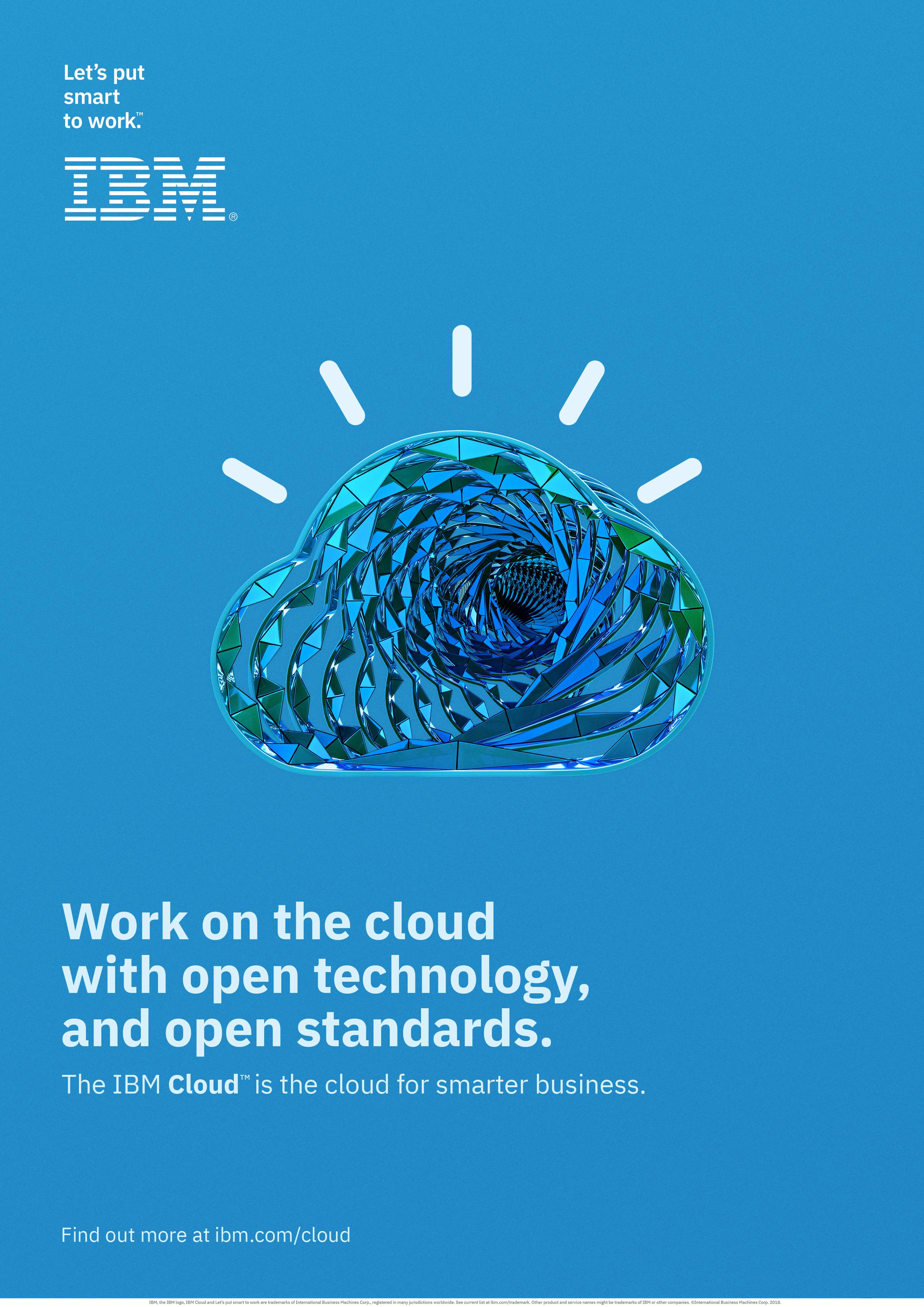 MELANIE NUCE SENIOR VICE PRESIDENT OF INNOVATION AND PARTNERSHIPS, GS1 US
MELANIE NUCE SENIOR VICE PRESIDENT OF INNOVATION AND PARTNERSHIPS, GS1 US
taking steps towards circularity today, they can ensure their products and assets live longer, and strengthen their operations by remanufacturing new and existing resources.
In a worldwide effort to limit global warming to no more than 1.5°C, global net-zero targets
have been set for 2050; however, the success of the world’s net-zero goals begins and ends with the circular economy. If companies do not reduce, reuse and recycle their products, the world will continue to face an uphill battle against climate change.
In a linear “take, make, waste model”, every product past the point of purchase ends up in a landfill, the third largest source of human-related methane emissions in the US. According to the EPA, in 2020 municipal solid waste (MSW) landfill methane emissions were equivalent to the greenhouse gases produced by driving 20.3mn cars for one year.
One of the biggest barriers to the circular economy, according to Nuce, is unstructured data that is not standardised. For products to be recycled, consumers and recyclers
“WHAT HAPPENS TO GLOBAL SUPPLY CHAINS WHEN THESE SCARCE RESOURCES INEVITABLY RUN OUT?”
need reliable and consistent information on their raw materials and chemical substances. When this information is not gathered or shared in standardised, machinereadable ways, sortation devices are unable to accurately recycle products and the materials cannot be reused upstream.
Other barriers include a lack of product traceability, transparency, and persistent identification. Today, data silos and a lack of supply chain visibility make it difficult for businesses to get the product data they need from their suppliers – and even if they have it, the consumer-facing information is lost once the package is thrown away or the tag is removed. To extend the use of their materials, procurement teams must be able to gather product attributes and assign unique and persistent product identifiers so the product, its parts, and its packaging can be tracked for multiple lifecycles. By leveraging industry standards to improve data quality across the entire value chain, companies can take a key step towards a circular economy.
With so many companies/organisations greenwashing their actual efforts, to what extent is a Circular Economy achievable?
It’s no longer enough for a company to just say its operations are sustainable, its raw materials are ethically sourced or its products are made from recycled materials. Consumers are prioritising sustainability, and they’re now requesting detailed information on product attributes including product sourcing, raw materials, chemical components and recycling facts. To meet consumer demands, companies need accurate data to back up their claims. As this data continues to be collected, digitised and shared, companies will have the information they need to improve the circularity of their operations.
“PROCUREMENT LEADERS KNOW THESE CHALLENGES ARE COMING, SO THE QUESTION BECOMES –WHAT ARE THEY GOING TO DO ABOUT IT?”
MELANIE NUCE
SENIOR VICE PRESIDENT OF INNOVATION AND PARTNERSHIPS, GS1 US
Circularity is achievable, but it will take time, says Nuce. First, the procurement industry needs to prioritise digitisation. By moving away from outdated, paperbased record keeping systems, we can improve data quality and accuracy. Second, digitised data must be collected in machinereadable ways to ensure interoperability with technology providers and trading partners. Third, this data must be shared across global supply chains to ensure product materials are sufficiently tracked from origin to destination. Once businesses achieve these three steps, they will have the information
they need to make their sustainability initiatives possible.
Future regulation may also play a role in the achievement of circularity. In the EU, Digital Product Passports (DPP) and Extended Producer Responsibility (EPR) requirements are in process, an indicator that similar activities will occur or expand in the US. as well.
The GS1 US leader says that a circular economy is not a solo exercise. It will require
“ONE OF THE BIGGEST BARRIERS TO THE CIRCULAR ECONOMY IS UNSTRUCTURED DATA THAT IS NOT STANDARDISED”
MELANIE NUCE SENIOR VICE PRESIDENT OF INNOVATION AND PARTNERSHIPS, GS1 US
an unprecedented level of collaboration across the procurement industry to improve product traceability within global supply chains. Attributes must be tracked and recorded at every step of the product’s journey from the sourcing of its raw materials to the point of sale, so the consumers have the recycling information they need to extend the product’s life cycle. With industry standards, procurement teams can ensure their data is digitised, stored and transferred in a common language amongst their trading partners so they have the data required for circularity to scale.
The procurement industry is just scratching the surface of circularity, but as ESG regulations continue to ramp up, consumers continue to demand more, and influential brands start stepping up to the plate, it will not only be able to create more resilient supply chains but also a greener, more sustainable world.
Businesses are making strides towards a circular economy every day.
For example, GS1 US’ start-up partners, like Scrapp, are developing apps that utilise product data to make recycling easier and decrease the amount of products that end up in our landfills.
Additionally, GS1 US is experimenting with persistent identification by developing ways to integrate machine-readable data into product fabrics, components and more. This means the product’s identity will eventually persist past the point of sale and essential recycling information will be carried across multiple life cycles, even after the product packaging and tags are discarded.
The future is either green or non-existent. The role of sustainable companies and their procurement strategies is key to the effort – here’s our Top 10
WRITTEN BY: ILKHAN OZSEVIMThe drive for sustainability is the drive for the future, and procurement is playing an increasingly central role in the crafting of that future. Despite the naysayers, there are companies who are breaking new sustainability barriers through innovation; silencing the opposition by setting the new standards of the world to come, and leading by example to refute the opposition with meaningful sustainability efforts. These are the Top 10 companies that are showing you how it’s done.
Brambles is a general furniture and manufacturing company that –through its share and reuse model – moves more goods to more people, in more places than any other organisation.
Brambles uses the power of its circular business model, network advantage and unique expertise to leverage the key capital inputs into its business to generate significant value for customers, shareholders and employees.

For customers, Brambles’ endto-end supply chain solutions deliver operational, financial and environmental efficiencies not otherwise available through oneway, single-use alternatives.

Dassault Systèmes is a sciencebased, innovation-driven, business-minded and long-termoriented company. Dassault Systèmes focuses on developing solutions in Life Sciences & Healthcare alongside two other strategic sectors of the economy: Manufacturing Industries and Infrastructure & Cities.
A global leader in sustainable innovation, Dassault Systèmes provides the 3DEXPERIENCE Platform, a virtual experience platform that allows customers to create innovative new products and services, and ultimately address the major challenges facing the world today in a sustainable way.

Atlantica is a sustainable power generation/infrastructure company with a majority of their business in renewable energy assets. They complement their portfolio of renewable assets with storage, efficient natural gas and transmission infrastructure assets, as enablers of the transition towards a clean energy mix.
Atlantica is also present in water infrastructure assets – a sector at the core of sustainable development.
Atlantica’s purpose is to support the transition towards a more sustainable world by investing in and managing sustainable infrastructure.
Orsted is a power generation company that’s dedicated to producing green energy on a massive scale. Orsted are committed to renewable energy, enabling people, businesses and communities to leverage its potential without having to worry about causing a negative environmental impact or limiting the opportunities of future generations. Orsted’s ambition is to build enough renewable energy to supply green power for 30mn people by 2025 and 55mn people by 2030.








With a history dating back to 1886, American Water is the largest and most geographically diverse US publicly traded water and wastewater utility company.
American Water employs more than 6,400 dedicated professionals who provide regulated and regulated-like drinking water and wastewater services to more than 14mn people across 24 states.
American Water provides safe, clean, affordable and reliable water services to their customers “to help keep their lives flowing”. With a 100% clean investment score, American Water is a sustainable company of gigantic proportions.

City Developments Limited (CDL), the leading global real estate company based in Singapore, are recognised by their customers, employees and peers as an innovative creator of quality and sustainable spaces.
In February 2021, CDL became the first real-estate developer in Singapore to join the World Green Building Council’s Net Zero Carbon Buildings Commitment. With unwavering leadership commitment from the Board and top management for over two decades, they are poised to lead in the new climate economy and build a better world for future generations.
Schneider was the first to monitor their impact on people, planet and profit with an industry-leading sustainability barometer back in 2005.
To date, Schneider has saved their customers 120mn tonnes in CO2 emissions, given approximately 30mn more people access to energy, and is committed to help its customers save and avoid 800mn tonnes of CO2 by 2025 (cumulated since 2018).

Schneider’s differentiation lies in its complementary actions to demonstrate outstanding environmental, social and ethical performance, and to support its customers in their net-zero CO2 journey.
The global IT services company Autodesk’s mission is to empower innovators with design and make technology so that they can “achieve the new possible.”

Their technology spans architecture, engineering and construction, product design and manufacturing, and media and entertainment, empowering innovators everywhere to solve challenges big and small.
Autodesk is changing how the world is designed and made, from greener buildings to smarter products to mesmerising blockbusters, Autodesk software helps their customers design and make a better world for all.


Far more than just a run-of-the-mill ‘food and beverage’ company, Chr Hansen is a sophisticated bioscience company that develops natural ingredient solutions for the food, nutritional, pharmaceutical and agricultural industries.

Recognising the challenges of climate change, food waste, global health and the overuse of antibiotics and pesticides as pressing issues that society and industry need to address, Chr Hansen is uniquely positioned to drive positive change through their sustainable microbial
solutions “to enable a future that values nature as the foundation of a healthy society”.




With a Corporate Knights energy productivity score of 80%, Chr Hansen take second place as they continue to unlock the power of ‘good bacteria’ through new technologies.
At the heart of their sustainability drive is the ambition to become a differentiated bioscience leader to improve food and health for a sustainable future, and “to grow a better world”.



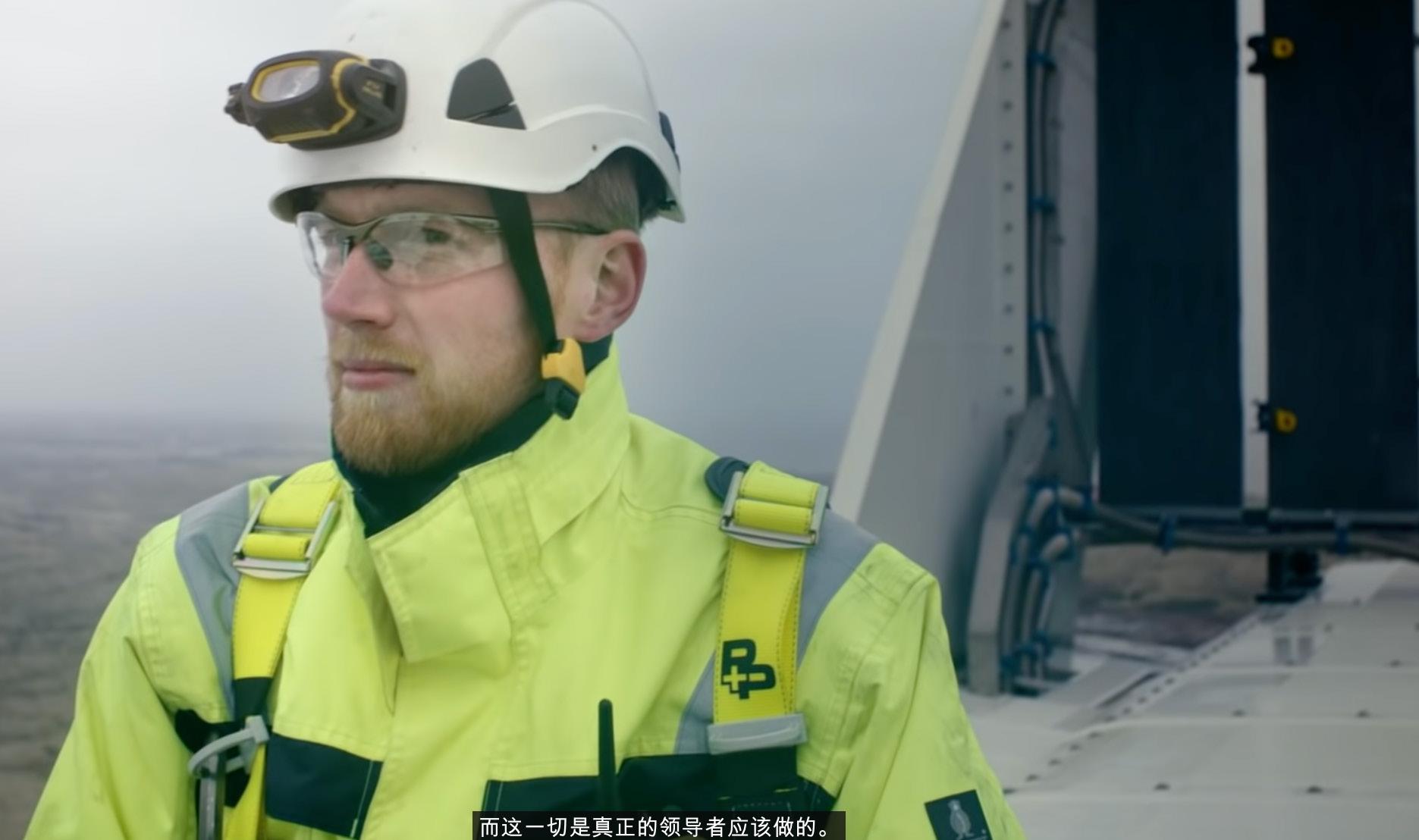

Vestas defines sustainability as reducing or eliminating negative environmental and social impacts, as well as maximising the value that their business and products provide for their customers, employees, shareholders, suppliers, local communities and the planet at large. They add that “it also means upholding sustainability in governance structures”.
This vision, informing their corporate behaviour, is why they are leaders in the field.
Vestas position themselves as the energy industry’s global partner on sustainable energy solutions, and for good reason.
They design, manufacture, install and service wind turbines across the globe, and with 160GW+ of wind turbines in 88 countries, they have installed more wind power than anyone else.
The deserving recipients of several sustainability awards, Vestas takes first place owing to their environmentally driven and industry-leading smart data capabilities, and 140GW+ of wind turbines under service, using data to interpret, forecast and exploit wind resources to deliver best-in-class wind power solutions on a colossal scale.
